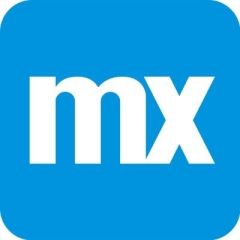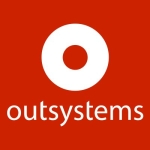What is our primary use case?
We build various products or solutions for clients. It's mainly smart manufacturing use cases.
How has it helped my organization?
The ability to reduce the code, and the development, has been a very drastic improvement over custom code. The ability to have these vast amounts of connectors, which Mendix provides, especially in the manufacturing space, is great. For example, with OPC UA protocols, I have not seen any other low-code provider. That's very niche to pull machine data. That shows how much R&D investment they have done to build some complex connectors to simplify the user need.
What is most valuable?
Their native mobile capability is very good. In general, the way they launch the product has been great. Their product launching strategy is far better than any other platform. I work in OutSystems and Mendix. OutSystems is good for legacy mod or transformation end. With this solution, the product launching strategy is very, very agile. I really like when they roll out their updates, which are very, very frequent.
Mendix is currently leading in the smart manufacturing, and connectivity space. The integration they have built-in is great. No one else has gone that far.
What needs improvement?
There is always a layer of custom code required. There is a misconception of low-code, or Mendix, or the industry in general. They are perceived as more of a dashboarding tool, and as a visualization platform only, rather than building a complete enterprise solution. That's more of an awareness marketing challenge they have, or the industry has.
In general, AI needs to be better. The team and the company is running ahead with this a bit more. AI area is something which companies have started to pick up on, low-code wise, and they should invest in it more.
I would like to see their data hub module become a little bit more mature.
They need to expand their base as the concept is amazing. We just need to see more use cases and learn more capabilities there, and then definitely they need to fill in the AI piece of it.
For how long have I used the solution?
I've been using the solution for the last 12 months.
What do I think about the stability of the solution?
As a platform, in terms of stability, I like it. It is a very well-architected platform. After the Siemens acquisition, Siemens actually put a lot of money into it, the UI, to improve the solution and filled a lot of gaps.
Right now, if any company or client asks me for a low-code solution in Industry 4.0 space, I would just say, "You don't have to spend money on doing an assessment. Mendix is your go-to." If a client wants to do financial services, this and that, yeah, we can do assessments. We'll figure it out, whatever they need, however, in the manufacturing space, Mendix has found a niche and no one is beating them in that area yet.
What do I think about the scalability of the solution?
With platforms, you really need to figure out what all the platforms are capable of. They cannot do, for example, in the manufacturing space, machine data. They can show the machine data, however, they cannot store it.
In general, they have capabilities where they limit themselves, intentionally.
We have internal and external users. On the manufacturing side, Manufacturing companies usually have use cases that will have more internal users versus external, which means they are dealing with factory workers. Per factory, in that case, you may have 50 to 100 people. We've built apps for an average of 100 to 200 users per factory.
We are going full-scale on Mendix right now. The way I've seen the other products, anywhere where we have manufacturing and SAP side of the product coming in, we are proposing Mendix. We are pushing Mendix 100%.
How are customer service and support?
We've dealt with technical support. We have someone in the UK that helps us. We have a US team, too, who works with us, however, they work as one team. They have a global team and we get support anytime we want in terms of troubleshooting, client issues, setup, very complex on-prem IT, OT problems, et cetera. They were able to help us out.
How would you rate customer service and support?
Which solution did I use previously and why did I switch?
I have done projects both on Mendix and OutSystems.
I prefer Mendix because of their Manufacturing related product development capabilities, which suites my need better in Smart Manufacturing space.
Moreover, both platforms are good, it all depends on the use cases.
How was the initial setup?
The initial setup is very easy. There is nothing to do. The setup in development environment capabilities, they even provide citizen development capability, which makes them very competitive.
I'd rate the ease of setup five out of five. However, if you're trying to install this in an on-prem environment, it is a hassle on its own for integration. We are not talking about integration. We are talking about just the initial setup.
The length of deployment depends on the problem the company is solving, the use case, and a bunch of different things around it. It varies.
For one company we work with, we can build our own connectors, private connectors. We did that in hardly three to four weeks, which that company itself could not do on its own. A lot of things are available in the background, however, if we decide we want to do something a certain way, we'll just build it that way.
With a low-code environment, traditionally, you need fewer people to maintain everything. You only need one person to do the external integration, for example. You need one person who can do custom UI development for sure, as for any project you hit, you will have 30% custom development, for sure.
IF you have a team of five, where three are purely Mendix developers and two are full-stack developers, they can deliver anything. It's not like SAP where you need specifically SAP people to handle everything.
What about the implementation team?
We are able to handle the implementation process ourselves. We have a consulting in-house development team.
What was our ROI?
We can show an ROI. We are able to, on the factory floor, go and understand what all the needs of the clients are. We can see the manual operations they do, and try to very quickly convert them into a mobile app or an iPad or some application and give it to them. With the turnaround time very quick here, it helps save costs.
What's my experience with pricing, setup cost, and licensing?
The solution can get expensive. A single simple application can start at $50,000. That's approximately the total cost of ownership. If you just quote on a single app without any support, they can even go as low as $30,000 to $40,000, however, you need a minimum amount of detail including minimum support and packages. This is an annual cost. While the app is free, you end up paying for more resources.
That said, it is pretty competitive. I'd rate it 4.5 out of five.
What other advice do I have?
We have a cloud version, hosted on AWS, and an on-prem solution as well.
I would advise others to not buy it blindly. Figure out the use case first. Do the cost-benefit analysis as the running cost of a low-code platform is a little bit higher, too.
They support startups, too, however, it might become expensive for them.
I'd rate the solution nine out of ten.
Which deployment model are you using for this solution?
Public Cloud
If public cloud, private cloud, or hybrid cloud, which cloud provider do you use?
Disclosure: My company has a business relationship with this vendor other than being a customer.






















